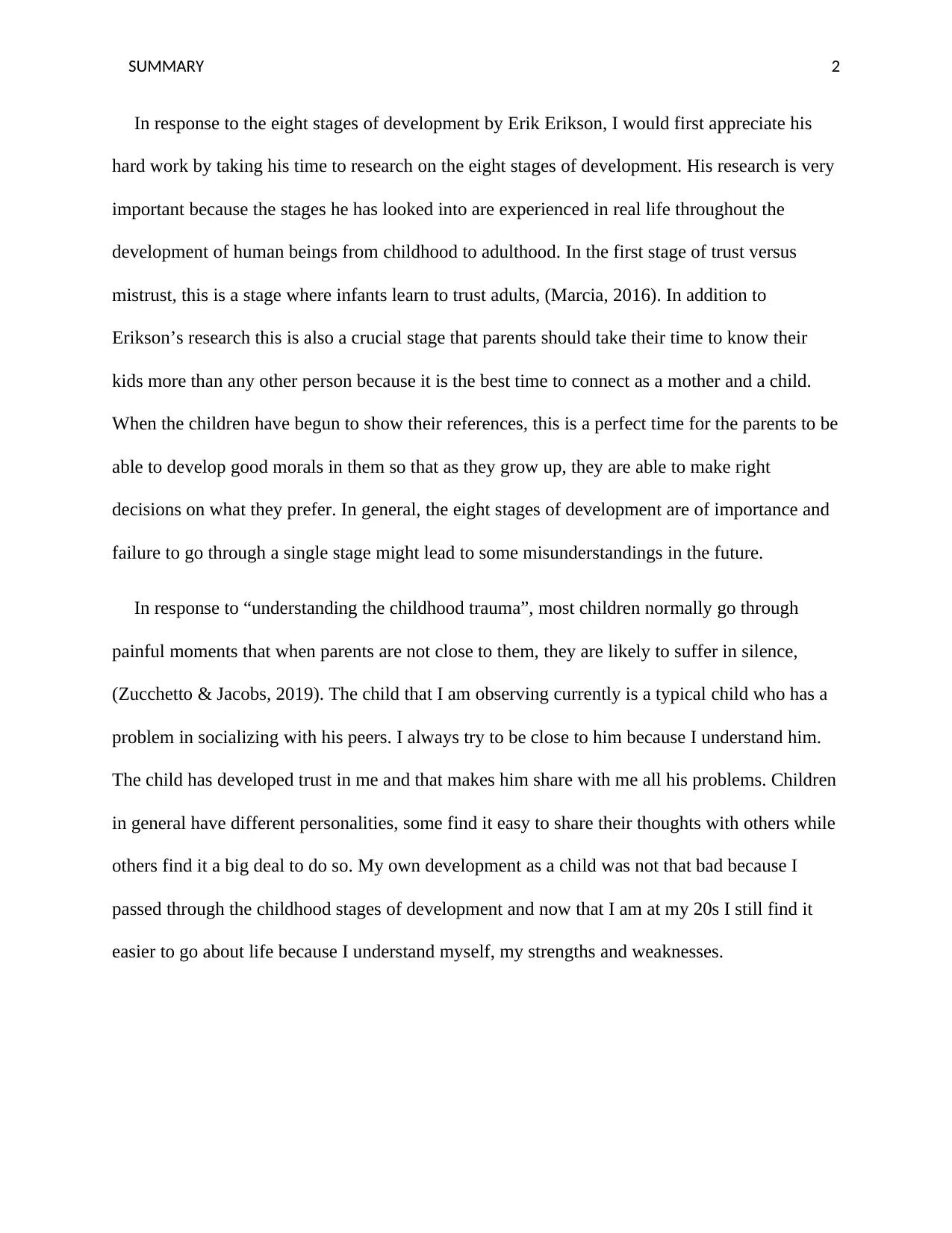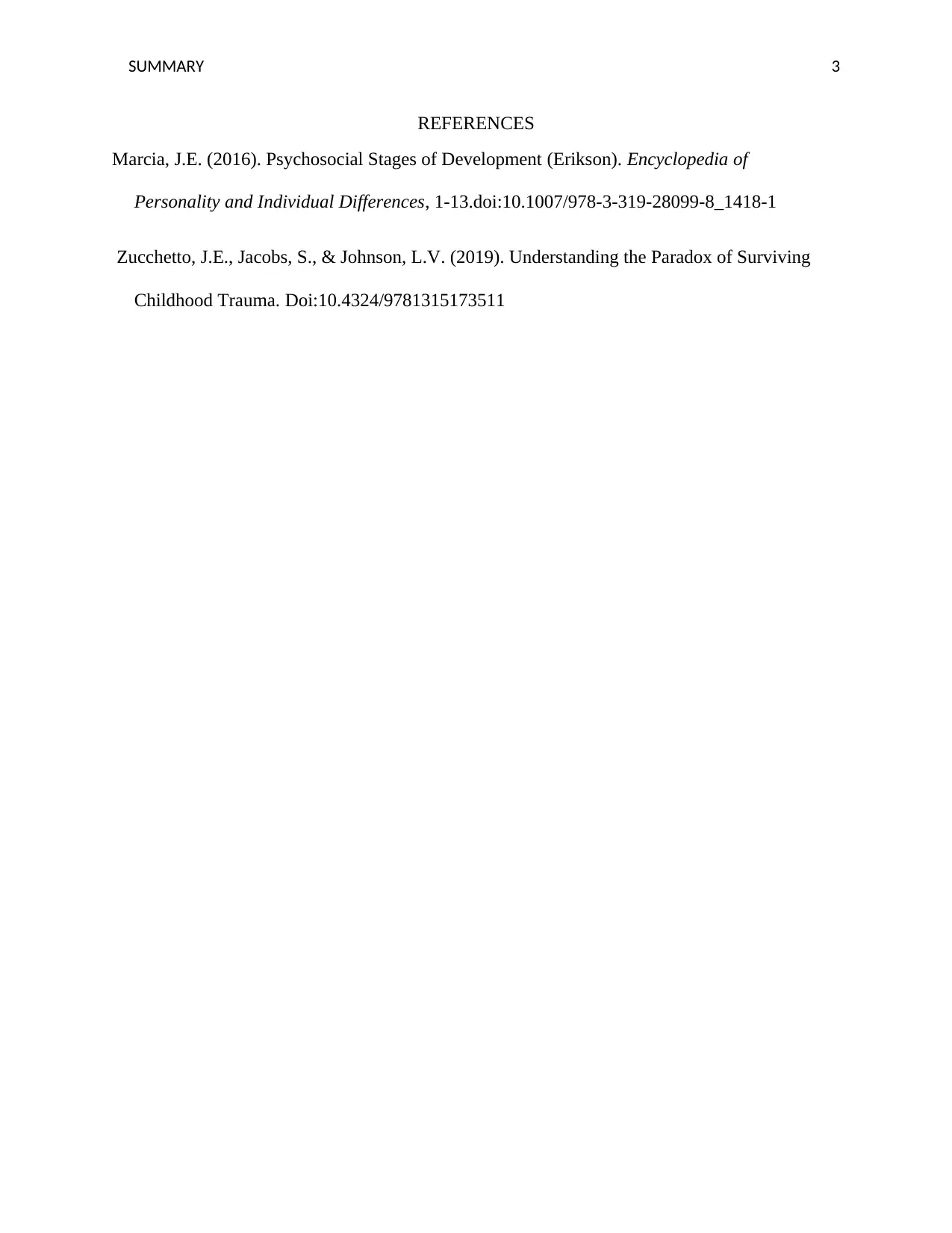Understanding Childhood Trauma Through Erikson's Stages of Development
VerifiedAdded on 2022/09/14
|3
|432
|18
Homework Assignment
AI Summary
This assignment analyzes Erikson's stages of development, focusing on how childhood trauma can impact an individual's life. The author reflects on the stages, particularly the trust versus mistrust stage, and its significance in early childhood experiences. The author also discusses the importance of parental support and understanding in helping children cope with traumatic experiences. The assignment provides a personal reflection on the author's own childhood and how they navigated the stages of development. It further explores the challenges faced by children in socializing and the significance of having someone they trust to share their problems with. The assignment references key literature, including Marcia (2016) and Zucchetto et al. (2019), to support the analysis.
1 out of 3










![[object Object]](/_next/static/media/star-bottom.7253800d.svg)